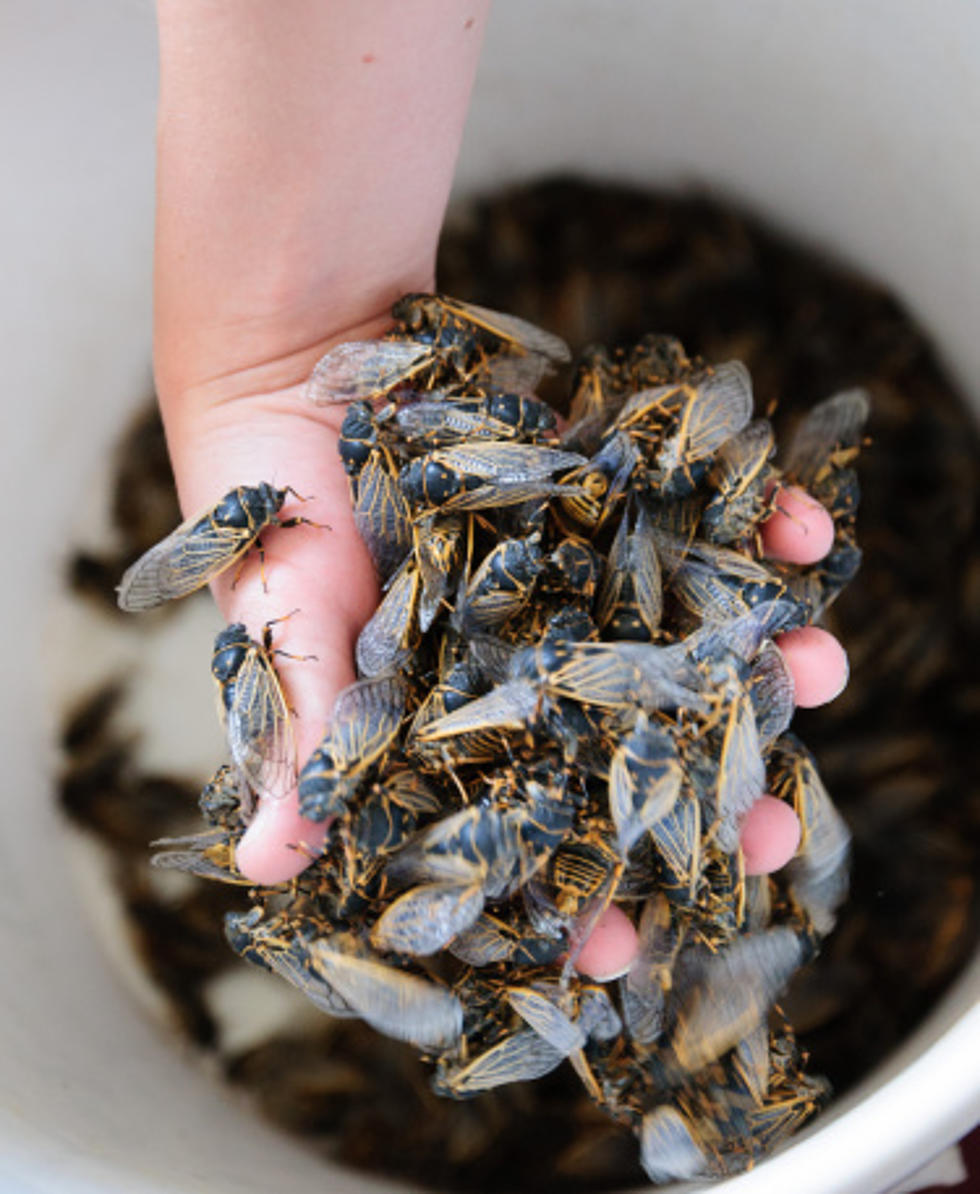
Cicadas In Illinois: Billions Are Coming Soon, Here’s When
Having followed this story for quite a while now, I knew that the coming emergence this spring of two cicada broods, Brood XIII and Brood XIX, would be big, but I had no idea how big or how historical this whole event is going to be.
And Illinois is right at the center of it all. Lucky us.
What's coming, a very rare dual emergence, could bring billions, if not a trillion cicadas out of the ground and very loudly into our lives, and the clock is definitely ticking on when it's going to take place. One thing the experts know for sure is that we haven't seen anything like this in over 200 years.
Actually, It's Been 221 Years Since Brood XIII and Brood XIX Had A Dual Emergence
That was in 1803, when Thomas Jefferson was president. The dual emergence of the two broods might have been bigger news, but there was a little thing called the Louisiana Purchase that was going on at the same time, and apparently that was bigger news than a bunch of bugs making a racket across the Midwest, where Illinois wasn't even a state yet.
In Northern Illinois, One Cicada Brood Will Be Dominate, Another Brood Will Be The Majority In Another Part Of The State, And One Segment Of Illinois Will Get Both Broods
In the northern part of the state, the aptly-named Northern Illinois Brood, or Brood XIII will be the cicadas that we'll get to see, hear, and even smell on an up-close and personal level. Residents of eastern Iowa, southern Wisconsin, and a narrow strip of Indiana bordering Lake Michigan and Michigan will also being seeing plenty of the Northern Illinois Brood soon.
The 4-centimeter long black bugs do not sting or bite. Once they emerge, they spend their two-week lives climbing trees, shedding their exoskeletons and reproducing. They can number up to a million per hectare.
The Northern Illinois brood, which will emerge in early 2024, has a reputation for the largest emergence of cicadas known anywhere
Brood XIX, or the Great Southern Brood cicadas, have a more spread-out population, covering parts of Missouri, Illinois, Louisiana, North Carolina, Virginia and Maryland.
Experts seem to think that central Illinois, around Springfield, will be the overlap spot where both broods emerge at the same time.
Let's Get To What We Really Want To Know: When Will The Cicada Broods Start To Emerge From The Ground In Illinois, And More Importantly, How Long Will They Be Here
It looks as though we have around 60 days until we'll start to notice that we've got a cicada problem on our hands. When you flip the calendar to April, just know that it's cicada showtime.
Cicadas typically emerge as the ground begins to warm in the spring and early summer.
That means an emergence between mid-May and early June, though some could start as early as late April.
For the Chicago area, Brood XIII will be most seen in parts of northern Illinois and Indiana, and possibly even in Wisconsin and Ohio, in late May 2024, Dr. Gene Kritsky, dean of Behavioral and Natural Sciences at Mount St. Joseph University in Cincinnati said in a 2023 press release.
According to an article from the University of Illinois Urbana-Champaign Extension, the Northern Illinois Brood's emergence typically occurs in May and June, and lasts approximately four weeks.
Here are more details on the upcoming Cicadageddon:
LOOK: 20 of the biggest insects in the world
Gallery Credit: Andrea Vale
Quiz: Do you know your state insect?
Gallery Credit: Andrew Vale


